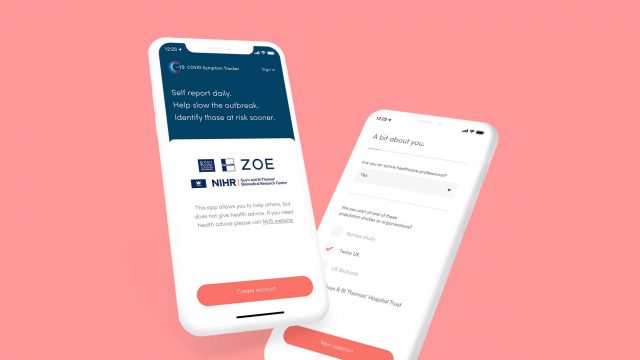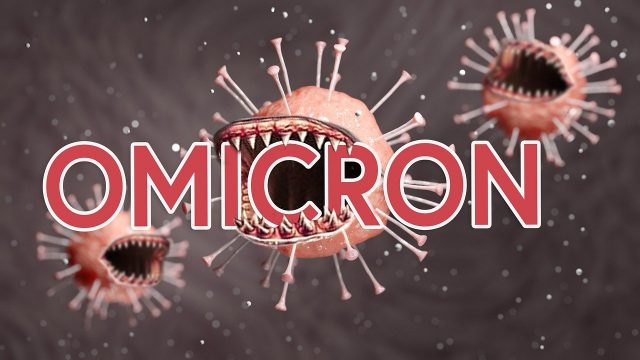Cold-like, milder symptoms have taken over with the start of the Omicron variation, as opposed to the ailments triggered by the Delta. The severely mutated form has become one of the most common in the world, prompting the World Health Organization (WHO) to label it a “variant of concern.”
Aside from the conventional COVID-19 symptoms, the Omicron is thought to cause a somewhat different set of symptoms, which, while minor, could lead to misdiagnosis. However, there are two symptoms that may not appear to be an Omicron-induced consequence but have been extensively documented.
What Do Experts Have To Say About The Symptoms?
Loss of appetite and skipping meals are two symptoms of COVID’s Omicron variation that can occur while you’re eating.

According to researchers at the UK’s ZOE COVID Study, those infected with the Omicron variety have had a “dramatic increase” in gastrointestinal symptoms such as diarrhea, stomach pains, and feeling unwell. While fever, exhaustion, and a loss of smell and taste are all classic COVID-19 symptoms, specialists feel that Omicron symptoms are slightly different.
Last year, the ZOE symptoms research app identified appetite loss as one of the early signs of COVID. However, the organization claims that skipping meals for a short period of time is not a cause for concern.
“However, a continued loss of appetite in the elderly could be a sign of something wrong and should be raised with their GP or usual healthcare professional,” it says.
“It’s not necessary to force yourself to eat if you don’t feel like it but it’s very important to keep drinking liquids to help replace the water lost as your body fights off the infection,” the researchers further added.
What Do They Imply?
The National Health Service (NHS) of the United Kingdom (UK) also emphasized the prevalence of the two symptoms, stating, “Many people experience loss of appetite and reduced food intake when unwell with COVID and during their recovery. It is normal to feel tired after being unwell, and recovery can take time.”
Also Read: Who Are Asymptomatic COVID Carriers And How Serious Can They Be For Others?
People who have these two symptoms should keep track of their weight and watch for signs of weight loss, according to the health department.
Weight loss is frequently related to skipping meals, which is also a possibility with Omicron if people do not feel like eating and skip meals. It’s vital to remember, though, that you should eat nutrient-dense foods and stay hydrated.
What Are The Most Common Warning Indicators To Look Out For?
Apart from the two symptoms listed above, Omicron infection can also cause a sore throat, bodily pain, slight fever, runny nose, and headache.
According to the ZOE study, you may also have night sweats, nausea, and vomiting in very uncommon circumstances.
Why Should Vaccination Be Given Top Priority?
Regardless of how small the infections are, when it comes to COVID-19 or Omicron, all required precautions must be taken.
Maintaining physical distance while wearing masks is critical. But, above all, immunization should be a top priority. COVID vaccinations, according to experts, have the potential to protect against serious illnesses.
That implies that, while an infection is still a possibility, consequences are less likely. Booster vaccines have also been shown to be more effective against the latest variety, Omicron, and specialists recommend that everyone get it as soon as they are eligible.
Disclaimer: This article has been fact-checked
Sources: Times Of India, Livemint +more
Image Source: Google Images
Find the blogger @ParomaDey
This post is tagged under health, coronavirus, SARs-COV-2, covid, alpha, beta, delta, Omicron, Delmicron, third wave, World Health Organization, third wave, Satyendar Jain, Sutra model, IIT Kanpur, European Medicines Agency, Dr Monica Gandhi, Bloomberg, California University, Professor Ian Jones, University of Reading, Dr Maria Van Kerkhove, Dr. Mike Ryan, Steve Biko Academic Hospital Complex, UK Health Security Agency, ZOE, National Health Service
We do not hold any right, copyright over any of the images used, these have been taken from Google. In case of credits or removal, the owner may kindly mail us.
Read More:
ResearchED: Is There A Relationship Between COVID-19 And Heart Attacks?








































